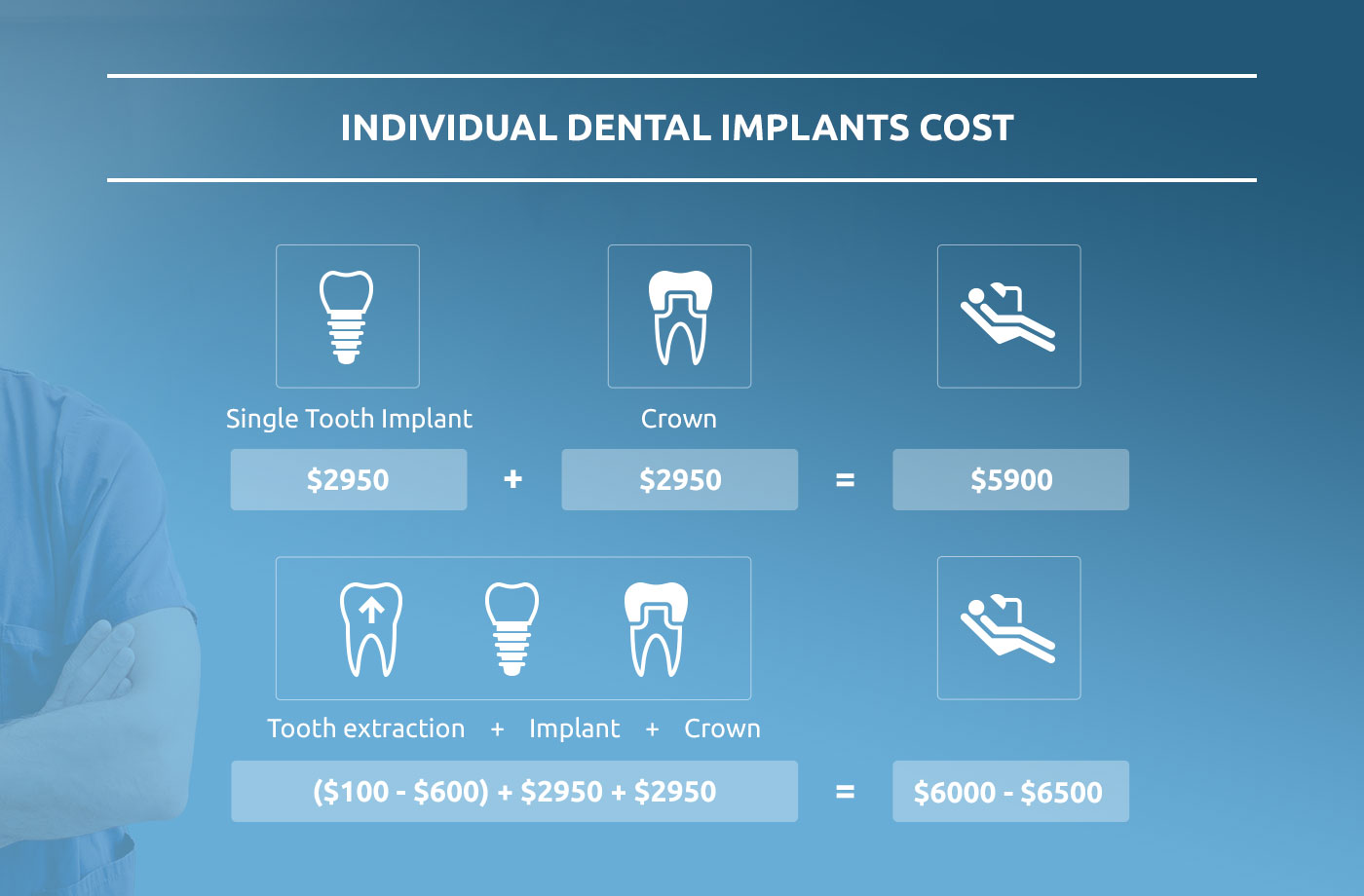Understanding Implant Dentures
How much are implant dentures with insurance – Implant dentures, also known as fixed dentures, are a popular choice for individuals seeking a permanent and secure solution for tooth loss. They differ significantly from traditional dentures in their design, functionality, and overall benefits.
Comparison with Traditional Dentures
Traditional dentures are removable prosthetics that rest on the gums. They are held in place by suction and can be prone to slipping or shifting, particularly during eating or speaking. In contrast, implant dentures are anchored to the jawbone using dental implants, which are small titanium posts surgically inserted into the bone.
This creates a more stable and secure fit, providing a natural feel and function.
How Implant Dentures Work
Implant dentures are a two-step procedure. First, dental implants are surgically placed into the jawbone. These implants act as artificial tooth roots, fusing with the bone over several months to provide a strong foundation. Once the implants have integrated with the bone, a custom-made denture is attached to them.
This denture can be either fixed or removable, depending on the type of implant and the patient’s needs.
Benefits of Implant Dentures
- Enhanced Stability and Security:Implant dentures are firmly anchored to the jawbone, eliminating the discomfort and inconvenience of loose or shifting dentures.
- Improved Comfort and Confidence:The secure fit of implant dentures allows for natural chewing and speaking without worry, boosting self-confidence and improving overall quality of life.
- Preservation of Jawbone Density:Unlike traditional dentures, implant dentures stimulate the jawbone, preventing bone loss and maintaining facial structure.
- Improved Aesthetics:Implant dentures are custom-designed to match the natural teeth, restoring a beautiful and natural smile.
- Long-Term Durability:With proper care, implant dentures can last for many years, providing a long-lasting and cost-effective solution for tooth loss.
Financing Options
The cost of implant dentures can be a significant investment, but several financing options are available to help make them more affordable. These options can help spread the cost of treatment over time, making it more manageable for patients. It’s crucial to explore these options and choose the one that best suits your financial situation and needs.
Dental Loans
Dental loans are a popular financing option for implant dentures. These loans are specifically designed for dental procedures and offer flexible repayment terms, often with lower interest rates than traditional personal loans.
- Pros:
- Lower interest rates compared to personal loans
- Flexible repayment terms
- No collateral required
- Quick approval process
- Cons:
- Interest rates can still be high
- Monthly payments can be significant
- Late payments can impact your credit score
To find a dental loan, you can contact your dentist, a dental financing company, or a bank that offers dental loans. You’ll need to provide information about your credit history, income, and the cost of your treatment. The lender will then assess your application and determine your eligibility and interest rate.
Payment Plans
Payment plans are another financing option that allows you to pay for implant dentures in installments. These plans are typically offered by the dentist’s office and allow you to pay a fixed amount each month for a predetermined period.
- Pros:
- No interest charges
- Predictable monthly payments
- Convenient and easy to manage
- Cons:
- Limited to the dentist’s office
- May not be as flexible as other financing options
- May require a large down payment
When considering a payment plan, ensure you understand the terms and conditions, including the total cost, monthly payments, and any fees or penalties for late payments.
Health Savings Accounts (HSAs) and Flexible Spending Accounts (FSAs), How much are implant dentures with insurance
If you have a health savings account (HSA) or a flexible spending account (FSA), you can use the funds to pay for implant dentures. These accounts allow you to set aside pre-tax money for qualified medical expenses, including dental care.
- Pros:
- Tax-free withdrawals for qualified medical expenses
- Can save money on taxes
- Convenient and easy to use
- Cons:
- Limited to qualified medical expenses
- Funds may not cover the entire cost of implant dentures
- May have a yearly contribution limit
Before using your HSA or FSA funds, confirm with your dentist that they accept these forms of payment and that implant dentures are considered a qualified medical expense.
Credit Cards
Credit cards can be a financing option for implant dentures, but it’s crucial to use them responsibly. Ensure you understand the interest rates, fees, and repayment terms before using a credit card for dental expenses.
- Pros:
- Widely accepted
- Can provide rewards points or cash back
- Flexible repayment options
- Cons:
- High interest rates
- Can lead to debt if not used responsibly
- May have annual fees
If you choose to use a credit card, prioritize paying it off as quickly as possible to minimize interest charges.
Finding a Qualified Dentist

Finding the right dentist for implant dentures is crucial for a successful and comfortable outcome. Choosing a dentist specializing in implant dentistry ensures you receive the best possible care and expertise.
Consulting a Dentist
It’s important to consult with a dentist to determine if implant dentures are the right option for you. A comprehensive dental evaluation will help assess your oral health, bone density, and overall suitability for this procedure. During the consultation, the dentist will discuss your dental history, treatment goals, and any concerns you may have.
Questions to Ask Potential Dentists
- Experience and Expertise:Ask about the dentist’s experience with implant dentistry, including the number of implant procedures they’ve performed. Inquire about their training and certifications in implant dentistry.
- Treatment Approach:Discuss the dentist’s approach to implant dentures, including the types of implants used, the surgical techniques employed, and the post-operative care provided.
- Technology and Equipment:Inquire about the technology and equipment used in the implant process. Advanced imaging techniques, such as CBCT scans, can provide detailed information about your bone structure, ensuring accurate implant placement.
- Communication and Patient Care:Ask about the dentist’s communication style and patient care approach. Effective communication is essential for understanding the treatment plan and addressing any questions or concerns.
- Financial Information:Discuss the cost of implant dentures, including any insurance coverage and financing options available.
Long-Term Care and Maintenance: How Much Are Implant Dentures With Insurance

Investing in implant dentures is a significant step towards restoring your smile and improving your oral health. However, the longevity and functionality of these dentures depend heavily on proper care and maintenance. Just like any other dental restoration, implant dentures require consistent attention to ensure they remain healthy and effective for years to come.
Maintaining Oral Hygiene
Maintaining good oral hygiene is paramount for the success of implant dentures. Neglecting proper cleaning can lead to plaque buildup, gum disease, and even implant failure. Here’s a detailed guide on maintaining optimal oral hygiene for implant dentures:
- Brush Regularly: Brush your implant dentures twice daily with a soft-bristled toothbrush and fluoride toothpaste. Gently brush the denture surfaces and the surrounding gums to remove food particles and plaque.
- Floss Daily: Use a floss threader to carefully floss between your teeth and around the implants. Flossing removes food debris and plaque from areas that your toothbrush can’t reach.
- Use Mouthwash: Rinse your mouth with an antibacterial mouthwash after brushing and flossing to further reduce bacteria and freshen your breath.
- Avoid Hard Foods: To prevent damage to your implant dentures, avoid biting into hard or sticky foods. Instead, cut these foods into smaller pieces to make them easier to chew.
- Use a Denture Cleaning Solution: Soak your implant dentures in a denture cleaning solution overnight to remove stains and bacteria. Follow the instructions on the cleaning solution bottle.
- Avoid Smoking: Smoking can significantly increase the risk of implant failure and gum disease. Quitting smoking is essential for maintaining the health of your implant dentures.
Regular Dental Checkups and Professional Cleanings
Just like natural teeth, implant dentures need regular dental checkups and professional cleanings. These visits allow your dentist to monitor the health of your implants and ensure they are properly integrated into your jawbone. During these appointments, your dentist will:
- Examine Your Implants: Your dentist will carefully examine your implants to check for any signs of infection, inflammation, or loosening.
- Clean Your Implants: Your dentist will use specialized instruments to remove plaque and tartar buildup from your implants and surrounding gums.
- Assess Gum Health: Your dentist will assess the health of your gums to ensure they are not receding or inflamed.
- Check for Bite Problems: Your dentist will check your bite to ensure that your implant dentures are properly aligned and not causing any discomfort.
“Regular dental checkups and professional cleanings are crucial for maintaining the long-term health and success of your implant dentures.”
FAQ Summary
What is the difference between traditional dentures and implant dentures?
Traditional dentures are removable, while implant dentures are permanently anchored to the jawbone. Implant dentures offer a more secure fit, improved stability, and a natural feel.
How long does it take to get implant dentures?
The entire process can take several months, as the implants need time to integrate with the jawbone.
What are the risks associated with implant dentures?
Potential risks include infection, nerve damage, and implant failure. However, with proper care and maintenance, implant dentures can last for many years.